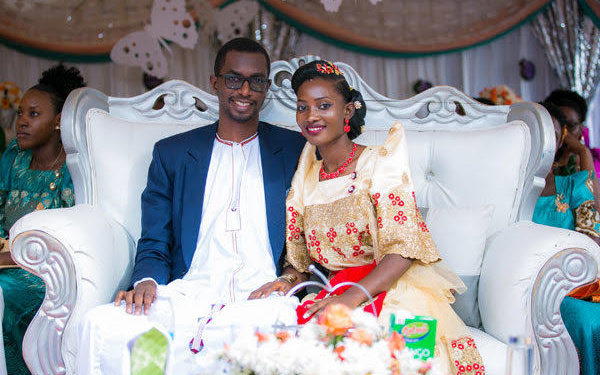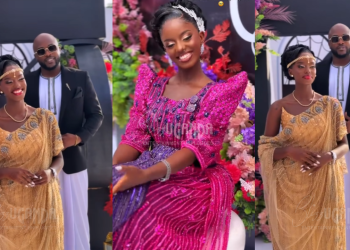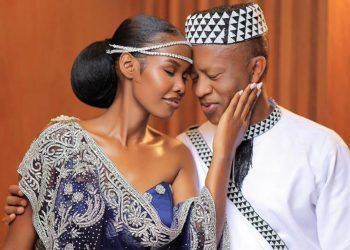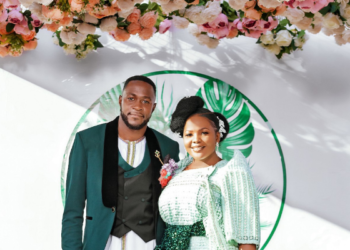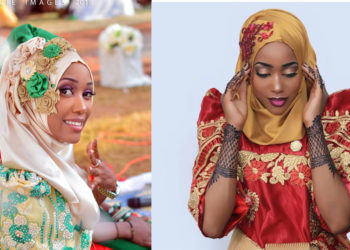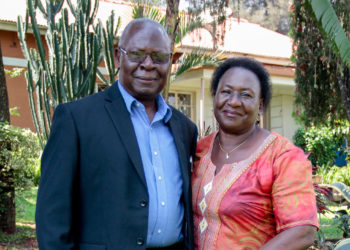By Claire Balungi
Being a traditional wedding emcee (omwogezi w’emikolo) is a calling to embody the father of a bride at a traditional function. One has to conduct themselves as a father would, if he received guests interested in his daughter’s hand in marriage. This imitation guides and develops the emcee’s character and poise at a Kwanjula.
Having been in the industry for over seventeen years, Swaleh Kiswiriri has had to negotiate the barriers and corners of traditional wedding emceeing. His interest stretches as far back to school where he says his passion for debate gave him a platform to chair meetings and pushed him to take on the mantle to lead in speech. No meeting was safe from his contribution, he says, as he lets us in on the experiences;
Using your experience, how does one learn to be able to speak able among so many people without breaking a sweat?
Swaleh: Three things
There is a hormone called adrenaline. When one decides to speak among people, it pours into their blood and brings fear- your voice could even get shaky.
Due to my debating background, that hormone had nothing on me.
I picked interest and started to learn how to go about each stage of the function. I crammed the words and got more confident.
In this era, most people’s zeal is exhibited in allowing to get trained or act as messenger (katumwa). You get to understand who is coming next at a function. I did not necessarily have to do that but I picked tipswhenever I could, through practice.
What motivates the emcees to learn to speak at functions?
Swaleh:
You admire to be accorded respect as a father so you start to imitate that by being prideful and speaking rather respectfully as a father, which draws people’s attention.
There is currently a shortage of jobs but there are a number of traditional functions taking place, one can decide to do emceeing. The many functions happeningdraw people’s attention towards emceeing.
Is there a particular school one can attend and pay a particular amount to become an emcee?
Swaleh: There is not yet an organized commitment to set up meaningful schools. The industry is still at a local level. Youths who admire to become emcees are quite the numberyet families who arrange functions want famous emcees who have most probably been at it for long. A famous emcee shall want to do all his functions on his own so his name remains upheld. Even if he decided to train people, he won’t take them to functions to perform practically. Although internally, at a local level, people are setting up small clubs/associations to drive this agenda. Usually the young gents assist as entertainers or messengers in the background at functions andlearn.
Why the association formation?
Swaleh: Due to competition by emcees at functions as they tried to show off their best skills usually by punishing the groom’s side, say by asking the groom and his escorts to kneel when they arrived late, functions got spoilt and time was wasted.
People then started to form groups/associations; when one emcee lands a tender to work at a function, they provide another emcee with whom they’d work well together and be in synch throughout the function. They make sure to keep time, share the payment in peace and strive not to complicate the function.
How are you able to set the price as an emcee and how much do emcees usually charge?
Swaleh: When it comes to payments, it depends on the family you’re going to work with but it does range between Shs 1mand Shs 300k. The status of the family and size of the function is a great guiding factor as we set the price.
The kind of entertainment that the family wants in the function is also a great determinant.
At the moment, there are emcees who come with a public address system. That definitely makes it more expensive.
Can families do without emcees at functions?
Swaleh: Usually families require resource contributions to set their functions in motion. When it so happens that families are searching for money, some family members or friends who have confidence to speak at other functions such as funerals and church impose themselves on the role of emceeing the traditional wedding as a contribution instead of giving money. These downgrade the better-knowing emcees of introduction functions and in most cases end up destroying the function.
How are you able to synch conversations as emcees from both the bride and groom’s side?
Swaleh: The groom’s side has to be submissive to the bride’s.
If anything, you can even go and sweet talk the brides side through the emcee before the function, you could tell him about the weaknesses of the groom and his escorts– for instance if they don’t have envelopes of fines or their desire to keep the function short and simple. That private pre-talk helps the synching of conversation. As emcee, you have to either come early and do that or get the contact of the emcee on the bride’s side and speak before the function.
Where do you see the emcee industry in years to come?
Swaleh: According to me, this industry shall continue

